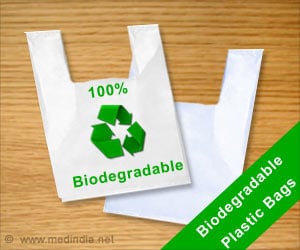Seaweed water containers and millet flour spoons are some of the new edible packaging solutions that could help handle the global plastic problem in the near future.

‘Seaweed packaging and edible spoons could well be a part of our daily lives, to tackle the global plastic problem.’





Likewise, many businesses around the world are pondering if consumers could actually chomp on their water bottles, plates and spoons once they have consumed the food packed in them. There were reports in March of nano-plastic particles present in water bottles from well known brands posing serious threats to consumer health. This could well be the solution to such threats, the report said.
Ooho water pouches from Skipping Rocks Lab, a UK-based sustainable packaging startup, are being made from seaweed for an esoteric post-beverage snack.
Though eating the water pouches might not be a reality at this point, they have received the thumbs up from French President Emmanuel Macron in December, as they offer a glimpse of a plastic-free future, the report said.
These containers could also help save the oceans. The pouches encase a serving of water in a thin membrane made from brown algae. They were developed in London by Pierre-Yves Paslier and Rodrigo García Gonzalez, who claim seaweed is safe to eat and regrows quickly, too.
Advertisement
Besides the UK firm, Indonesia's Evoware launched seaweed packaging in September that can wrap a burger or noodles. In New York, Loliware has come up with a cup you can eat, made from agar seaweed, and is working on an edible seaweed straw.
Advertisement
Peesapaty's edible spoons can be eaten up after polishing off a bowl of daal (pulses). In Poland, there are Biotrem's wheatbran plates you can scoff.
However, Chadwick is not sure whether consumers would be comfortable eating the packaging? "Will it taste good? Would anyone want to eat packaging that has been handled by other shoppers,", the Guardian report wondered.
Source-IANS












